Well, that was grueling.
Alright, in case you missed it, my Best Performances of the 2000s post articulated my attitude toward lists, namely that they’re inherently absurd but also compulsively readable. That list was also incredibly difficult to make, but compared to my next task, it was easier than playing Seeker while high on Felix Felicis. A top 10 list of the best movies of the entire decade? Now that’s intense. In terms of the most nerve-wracking, pressurized, “I feel like Ron Burgundy reading the news without a teleprompter” moments in my life, creating a list of the decade’s 10 best films fell somewhere between “Taking the LSAT” and “Shooting two free throws with my team down two and no time left on the clock”.
And I failed. Miserably.
I’m sorry, I just couldn’t do it. I can’t precisely quantify how many movies I’ve seen over the past 10 years, but I’m guessing the tally is around 800. Do you honestly think I can coherently assemble a compendium representing the best 1.25% of those films? It would be like being tasked with choosing the 10 best baseball players of all-time, or the 10 best Emma Watson moments in film history. You can’t possibly do it without omitting contenders that merit a mention. It would be a moral violation of all things just and true.
But rather than yield to the impossibility of the task before me, I instead decided to, well, cheat. As such, rather than making a list of the top 10 movies of the decade, I went with a top 25. And trust me, it wasn’t much easier. I’m still suffering over the exclusion of a handful of films that, perhaps if I had compiled the list at a different time, would have slid into the final field. Where’s The Dark Knight? No Slumdog Millionaire or A Beautiful Mind? What about The Aviator, or The Bourne Identity, or Shattered Glass, or Revenge of the Sith? I exiled those and many more deserving candidates to the purgatory of the also-ran, and I did so with a heavy heart.
But thus was my duty. My readership demanded a list of the best movies of the decade – O.K., no you didn’t, but hey, I can pretend – and I am required to deliver. Heavy lies the crown. Or something.
Alright, let’s get to it. I’m splitting this into two posts: This one will detail slots 11-25, while the next will present the final 10. And that’s that – here we go with the Manifesto’s Best Films of the 2000s:
25. The Departed (2006). I’ll wager that my placement of The Departed at #25 will instill some furor among my readers – not for having included it, but for having the temerity to place 24 films ahead of it. One of those exceedingly rare pictures that won both critical acclaim (including a Best Picture Oscar) and widespread approval from audiences, Martin Scorsese’s gangster opus for the new millennium is kinetic, suspenseful, and tremendously funny. It is also, I’ve come to conclude over repeated viewings, deeply flawed. The editing is sloppy, the screenplay lurches rather than glides, and Jack Nicholson’s mugging teeters on the edge of parody. But it’s still a bravura masterpiece, a hyper-violent saga that exposes the ugliness of the mob while retaining a stylized, artistic sheen. Most of all there is Leonardo DiCaprio’s performance – his magnetic, frenzied portrayal of a desperate undercover cop in over his head will be immortalized in the annals of cinema.
24. Crouching Tiger, Hidden Dragon (2000). Hey, look, I watch foreign-language movies too! Ang Lee’s martial-arts epic has a curiously detached feel, almost as though it takes place in a different universe (which, in a way, it does). But that soft, reverential tone buttresses the movie’s large-scale ambitions, while the restrained acting and sturdy plot prevent it from drowning in grandiloquence. Made 10 years ago, the fight sequences remain as electrifying as ever, and the characters are fully developed rather than mere action ciphers. Bonus points for heralding the arrival of Zhang Ziyi, the delicate beauty who has enchanted audiences throughout the decade.
23. The 40-Year-Old Virgin (2005). I almost went with Anchorman here, partly because it’s the most quotable movie since Ghostbusters, partly because the scene with Jack Black on the bridge still represents the loudest and longest I’ve ever laughed in a movie theatre. But The 40-Year-Old Virgin is undoubtedly the decade’s defining comedy. Anchored by a deceptively deep performance from Steve Carell, Judd Apatow’s debut film mixes outlandish, dialogue-driven humor with likable, winsome characters, and the result is both hilarious and moving. Apatow’s distinctive brand has come under predictable fire recently (see especially the backlash surrounding his strained but absorbing Funny People), but he’s a filmmaker who instinctively grasps that comedy is most effective when it revolves around people we care about.
22. Kissing Jessica Stein (2002). While The 40-Year-Old Virgin patented a blueprint upon which future comedies would build, Kissing Jessica Stein is a comedy noteworthy for its refreshing originality. On the surface the story of a neurotic, unhappy woman tentatively exploring a same-sex relationship (make that very tentatively), it doubles as a tender but pointed inquiry into the meaningfulness of sex as an element of human connection. That may sound a bit academic, but (Brown alum!) Charles Herman-Wurmfeld’s winning film is far from a sociological inquest. It’s firmly localized to its intelligent, three-dimensional characters, and it’s leavened with sharp humor from the script by Jennifer Westfeldt and Heather Juergensen. Adapting their own play, those women double as the leads in the film and create a dynamic that is somehow both bracingly realistic and effortlessly charming. Kind of like the movie.
21. Avatar (2009). Swiftly claiming its place as the highest-grossing film in world history, James Cameron’s spectacular sci-fi adventure may well turn out to be the most influential film of the next decade. Logic would suggest that studio heads everywhere will desperately strive to fashion blockbuster entertainments by piggybacking on Avatar‘s revolutionary filmmaking technology (though they may balk at the associated budget). But they may find that Cameron’s prowess cannot be so easily imitated. That’s in part due to his unparalleled mastery of all things tech, but it’s also due to his canny ability to deftly graft that technology into the larger sphere of his narrative. Depending on your personal taste for Cameron’s bombast, the story in Avatar is either shamelessly derivative or soothingly familiar. But the film is a magnificent achievement either way, and it’s further proof that movies as a medium retain the possibility to astound us.
20. Almost Famous (2000). I don’t profess to be a scholar of rock-and-roll; hell, I’d never even heard of The Who until they lent “The Seeker” to American Beauty. But you don’t need to be a music enthusiast to appreciate – make that adore – Cameron Crowe’s cheerful, nostalgic look at a hapless group of misfit rockers scrabbling for the big-time. (Or, as Philip Seymour Hoffman mocks: “It’s a think-piece about a mid-level band struggling to cope with its own limitations in the harsh face of stardom”. Amen.) That’s because Almost Famous is really about a family and the way fraternal bonds can fray in the midst of uncertainty. If that sounds depressing, have no fear, as this is one of the most purely enjoyable movies I’ve ever seen. In addition to a richly funny behind-the-scenes peek at a band’s life on the road, it’s also a tender coming-of-age tale (based on Crowe’s own life), a gentle love story (featuring a knockout performance from Kate Hudson), and a heartfelt valentine to one art form in the guise of another. (And for what it’s worth, it includes some pretty kickass music too.)
19. Up in the Air (2009). It’s been weirdly gratifying for me to observe Jason Reitman’s progress as a filmmaker, almost like he’s my Canadian cousin or something. Thank You for Smoking, if ultimately lacking in substance, flashed undeniable promise, and Juno – artificial elements aside – leveraged that promise into an earnest character study of pluck and wit. But it’s with his third film that Reitman truly ascends. Up in the Air is perfectly modulated picture, skillfully balancing humor (both warm and acerbic) and pathos, all shrouded in a haunting cloud of topicality. But while it’s easy to admire Reitman’s film for its strikingly direct depiction of life in (or out of) the American workforce today, it’s the intimacy of the character interactions that marks it for greatness. The splendid acting helps too: George Clooney can play quick-witted, authoritative men in his sleep, but he adds depth and nuance to his cool exterior without going overboard, while Vera Farmiga and Anna Kendrick are right in step with him. The title may evoke uncertainty, but Reitman’s self-assured character study is anything but tentative.

18. Moulin Rouge! (2001). “Does it ever stop?” That was my buddy Johnny’s reaction after experiencing the first 30 minutes of the whirling dervish that is Baz Luhrmann’s musical tour de force. It is not, I concede a work of subtlety. After all, restraint tends to go out the window when you stage a production of Nirvana’s “Smells Like Teen Spirit” inside a turn-of-the-century burlesque. But despite his extreme flamboyance (did I mention Jim Broadbent sashays his way through Madonna’s “Like a Virgin”?), Luhrmann’s command over his colorful entourage is so complete that his movie attains a startling coherence matching its extravagance. The narrative drives forward purposefully and maintains keen focus on the lead characters, elevating their unabashed love-conquers-all romance to a majestic tragedy (if perhaps the most giddy tragedy ever filmed). Anchored by two fearless, go-for-broke performances from Nicole Kidman and Ewan McGregor, with musical sequences so transcendent that you feel compelled to jump up and applaud, Moulin Rouge! illustrates that movies can be bold and vivacious and still steal our hearts.
17. Pride & Prejudice (2005). Everything about this film is beautiful. Austen loyalists will likely grouse that the 1995 version starring Colin Firth is superior, but that workmanlike BBC production appears downright staid compared to the gorgeous sublimity of Joe Wright’s debut. Deborah Moggach’s screenplay skillfully condenses Austen’s classic into manageable length without sacrificing any of its emotional power, and Wright and a superbly talented cast do the rest. Though set in the early nineteenth century, Pride & Prejudice evades the sense of torpor that ensnares so many period pieces; nothing about it feels dated or tedious. The filmmaking is fresh and lively, the pace is equally brisk, and the dialogue sparkles with Austen’s trademark wit and verve. And of course, there is the breathtaking performance of Keira Knightley, essaying one of literature’s classic characters with her own brand of fiery independence, shrewd intelligence, and quiet longing. And beauty – that too.
16. The Fountain (2006). Whoops, sorry, I got my Darren Aronofsky movies confused. This one’s on my list of the worst of the decade, as opposed to …
16. Requiem for a Dream (2000). Sorry, I couldn’t resist. But Aronofsky is nothing if not uncompromising, and while that obstinacy may have made The Fountain utterly unwatchable, it lends dramatic heft and potency to Requiem for a Dream, one of the few truly disturbing pictures of the past decade. A searing portrait of four drug-addled people who don’t so much succumb to the allure of drugs as fall victim to their ruthlessly destructive power, the movie is brutally frank in depicting the ugliness of addiction and its consequences. It is also highly gimmicky – most notably in its repeated employment of high-speed montage and split-screen – but somehow those showy devices magnify the omnipresent dangers lurking in the characters’ lives. Jared Leto’s heartbreaking portrayal of a man caught in a self-constructed vortex is haunting; he’s just doing what he can to survive, but it’s futile to fight in a world devoid of hope.
15. High Fidelity (2000). It’s easy to admire Stephen Frears’ iconic adaptation of Nick Hornby’s novel for its comedic brilliance – especially when it features phenomenal moments like this – while simultaneously overlooking its trenchant insights into modern romance. Aided by a sharp, persistently hilarious script, Frears playfully pokes fun at the banality of post-adolescent love, happily humiliating his hero with one failure after the next. Yet he also pays homage to the undeniable appeal of romantic connection, and he acknowledges its value. The scene in which John Cusack (in a performance of resplendent self-loathing) contrasts his fantasy girlfriend with his real one is one of the sweetest, most genuinely touching speeches about love I’ve ever seen; that it includes a detailed analogy involving dirty lingerie only reinforces its timelessness.
14. Pirates of the Caribbean: The Curse of the Black Pearl (2003). It’s tempting to characterize Gore Verbinski’s first installment of the Pirates of the Caribbean franchise as pure entertainment because, well, it is pure entertainment. And in no way is that a bad thing. Bubbling over with infectious enthusiasm, the movie generously serves up healthy doses of action, humor, and low-key special effects ingenuity, along with a welcome helping of eccentricity. The Curse of the Black Pearl may be an action blockbuster in the classical sense that it aims to entertain, but it’s also wholly original, led most of all by the wobbly movements and wily tongue of its inimitable anti-hero. Alternately swaggering and staggering, Johnny Depp’s Captain Jack Sparrow is a character for the ages, a larger-than-life pirate who’s also a marvelous dolt. But while Depp’s magnificently madcap performance is the movie’s most memorable element, it is not the only one. The script is laden with wry, twisty dialogue, the supporting cast (led by a scene-munching Geoffrey Rush) hams it up gleefully, and the swordplay is both vigorous and elegantly restrained. In the words of Captain Jack, savvy.
13. Match Point (2005). Woody Allen spent the nineties becoming irrelevant, so his return to filmmaking excellence with this London-set picture was a shock in itself, but the real story is the way he does it. The pithy, neurotic style upon which Allen founded his career is entirely absent; instead he gives us a taut, alarmingly perceptive psychological thriller steeped in old money and older themes of jealousy, infidelity, and moral deprivation. Propelled by Jonathan Rhys Meyers’ canny, masterfully nuanced performance, Allen delivers an austere look at the dynamics of family and marriage while also probing the dark corners of the human mind. The film’s final third is achingly suspenseful, but Match Point is far more than a mere thriller with a twist. It’s about the beats of silence in conversation, the things we think but do not say, and the consequences of indulging in temptation.
12. The Lord of the Rings: The Return of the King (2003). Many will advocate the introductory chapter, The Fellowship of the Ring, as the superior title, but the particular installment is essentially irrelevant. Peter Jackson’s mammoth trilogy remains a cinematic landmark, an epic saga that’s home to grand, mythic set pieces while still finding room to shade in its characters. Jackson possesses an appropriate reverence for J.R.R. Tolkien’s immense novels, but that reverence doesn’t encroach into worship. He retains the gigantic scope of Tolkien’s work but breathes new life into it, scratching out lengthy passages and subplots while bulking up key action sequences. As a result, Return of the King isn’t a limp, rote transliteration of its source material but a vibrant, energetic, and thoroughly original work.
11. Eternal Sunshine of the Spotless Mind (2004). Perhaps no screenwriter possesses as distinctive an imprint as Charlie Kaufman, the man behind such offbeat, patently unusual works as Being John Malkovich and Adaptation. Those are both quality movies, but paired with director Michel Gondry (a bit of an eccentric himself), Kaufman’s idiosyncratic sensibilities take full flight with this quirky, surreal, and devastatingly sincere story of two lovers who erase each other’s memory. The usual Kaufman zaniness is on full display – at one point the protagonists find themselves bathing in a sink in the form of overgrown babies – but the reason Eternal Sunshine ascends to true greatness is that its outlandishness links directly into its characters. Writers with the vastness of Kaufman’s imagination tend to let their ideas overrun their human creations, but here Gondry and Kaufman keep us firmly grounded in the starkness of their characters’ predicament even as their world turns into a funhouse. It helps that Jim Carrey and Kate Winslet deliver two heartbreakingly realistic performances. As Joel and Clementine, they’re thrown into the midst of Kaufman’s mind-bending machinery, yet that isn’t the film’s focal point. It’s more closely attuned to their humanity, and both of them are unmistakably human, full of passion and pain, longing and regret. In other words, they’re just like us.
That’s it for now – check back soon for part II.
Jeremy Beck is the editor-in-chief of MovieManifesto. He watches more movies and television than he probably should.

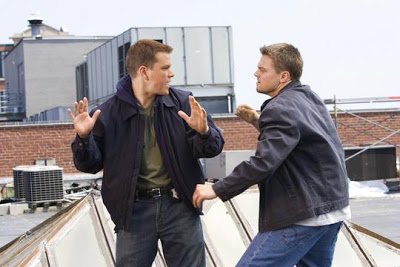
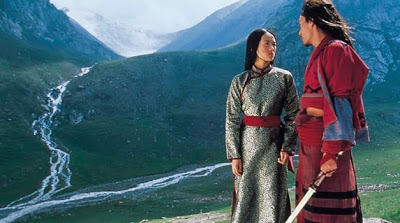


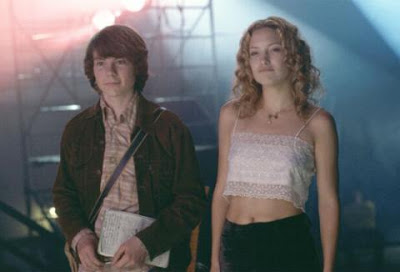
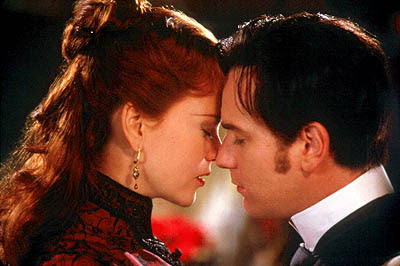
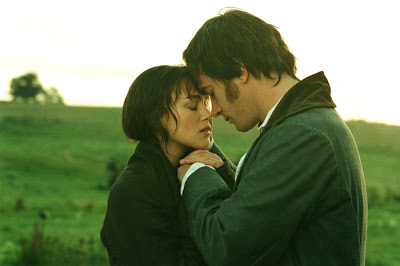
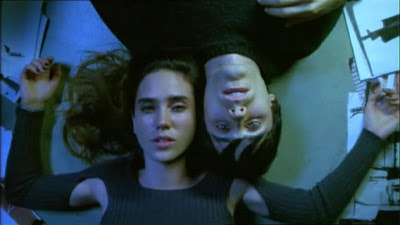
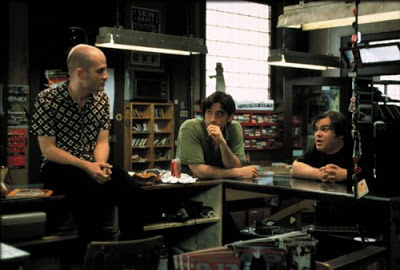
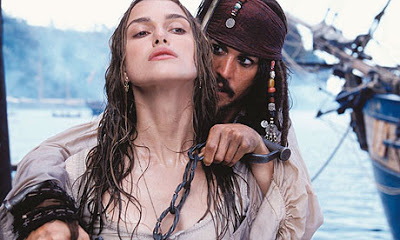
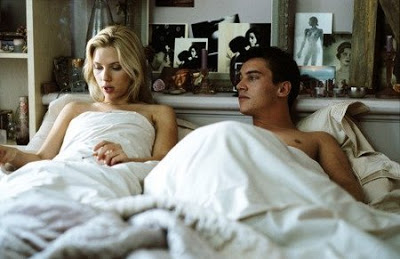

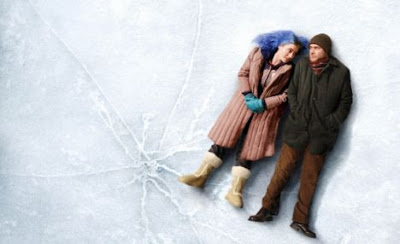
Jeremy,
You know I love these lists. As a whole I am generally impressed. Two problems, Old School should replace 40 Year Old Virgin, and Eternal Sunshine should have cracked your top ten.
Yeah, I feel like everybody has certain movies that are universally adored by the public but just don't work for them personally. Strangely, Old School is one of mine. I think it's funny, but it just wasn't memorable for me. I realize that's sacrilegious, but such is life.
While I'm thinking about it, other films in the same vein (i.e., those with universal public appeal that don't really work for me): Apocalypse Now, Monty Python and the Holy Grail, Raging Bull, The Royal Tenenbaums, Scarface, The Seven Samurai, The Third Man. And as with any list, I'm sure there are plenty more that I'm missing.
Jeremy,
I'm going to withhold complete judgment until I see the final 10 movies. That being said, a few comments.
First leaving Dark Night and Royal Tenenbaums off is mildly disconcerting and I'm really hoping that 25th Hour hasn't been left by the waste side, though I fear it has.
I disagree with Pride & Prejudice, which I fear is on this list due to your prejudice. I also don't like the 40-yr old virgin on this list, as I think Anchorman and Old School were funnier (but don't deserve top 25 billing either).
I love the nod to High Fidelity, a very under appreciated movie. And, like Luke, I think Eternal Sunshine should be in the top 10, but I will wait to see what bumped it down. I also think Almost Famous should be in the top 10.
Now my stab at your remaining top 10 – in no particular order. No Country for Old Men, Juno, Traffic, There Will be Blood, A History of Violence, Wall-E (I hope i'm wrong), Brokeback Mountain, ::insert Clint Eastwood film here:: (Mystic River??), Amelie, and Memento. And my two subs would be Mulholland Drive and Atonement (please no).
Interesting list.
As you know, I'm a huge fan of the BBC Pride and Prejudice. So much so that I boycotted the new one w/ Keira Knightley… seeing it on this list makes me rethink that decision. 🙂
You've got to put Juno and Wall-E in your top 10, which I'll preemptively give my stamp of approval now.
I'm equally sure that Atonement will be present in your top 10, but I still hold a grudge against you for recommending that movie to me and destroying a nice night out with a friends. So BLEAH.
Question: where are your beloved Harry Potter movies? Will there be more than one in the top 10? 🙂
Savio: You aren't the only one upset about "The Dark Knight", as many of my readers are furious. All I can say is that it was one of the final cuts — I just couldn't stop thinking about that incoherent "sonar" scene in the abandoned building near the end. Still love the movie though.
I liked "25th Hour" a lot, but it's one of those films that didn't stick with me. I should see it again at some point, although I remember being dissatisfied with some of the plot developments in its second half.
Appreciate your guesses at the remaining list — you hit on three — though I'm somewhat offended that you thought I'd include "Mulholland Drive", which I loathe.
Stacy: You won't regret seeing "Pride & Prejudice", I promise. Of the other movies you mentioned, two are on the top 10. As for Harry Potter, stay tuned.
It's interesting, but based on people's guesses thus far, I'm starting to get the feeling that my final 10 are going to be met with considerable uproar. To be expected, I suppose.
Thanks for the comments, kids.
Now that you mention it, i do recall your hatred for Mulholland Drive…i apologize for not remembering it.
From your comment i fear i'm going to really dislike your top 10, which will I now assume will include Wizard films, and a movie about a garbage disposal. Dare you put a Kill Bill, another animated movie, or 2 Coen brother films in? You weren't a Lost in Translation fan were you?
What the hell are you thinking??
You can add "Lost in Translation" to the list of beloved movies that I just don't get. I liked it, but I never understood the massive hype.
I am, however, a big fan of "Kill Bill, Vol. 2", but it was a little too patchy and poorly paced to merit "best of the decade" status.
I am 100% certain Atonement is going to be in your Top 10, and I'm already mad at you for it. That movie was even worse than Crash.
At least you didn't put the Dark Knight in your top-25. I guess I'm not the only person that thinks an entertaining action movie with a ton of plot holes doesn't deserve to be considered a "classic".